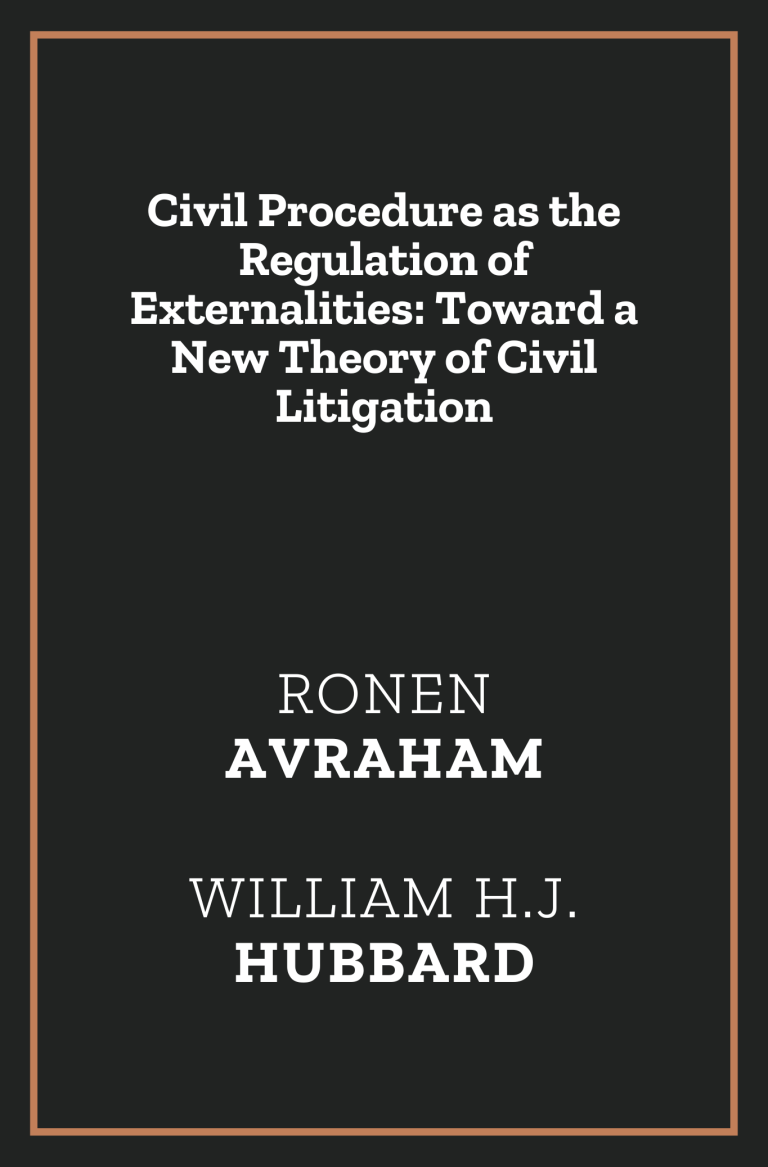From University of Chicago Law Review
Civil procedure serves a multitude of goals, from regulating the cost of fact-gathering to dictating the rules of advocacy in court to promoting public participation in trials. To what extent can procedural design serve them all, or must rules sacrifice some interests to serve others?
In this article, the authors introduce a theory of procedural design that answers this question. They build upon the fundamental insight that the goals of civil procedure, as varied as they are, all occupy a common conceptual space—each addresses an externality, positive or negative, that litigation creates. This insight allows them to tie together distinct strands of scholarship on procedural design, develop a taxonomy of externalities that civil procedure addresses, and propose (sometimes radical) reforms that would allow procedure to serve more of its goals at once.

